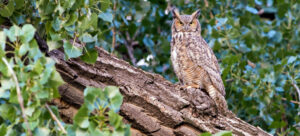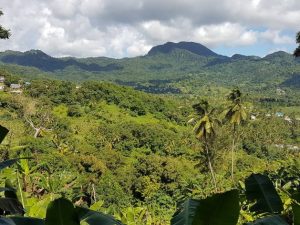Hunting on Equatorial Guinea’s Bioko Island threatens red colobus monkeys, which hover on the brink of extinction.
It’s hard to ignore a red colobus monkey in the forests of Equatorial Guinea’s Bioko Island, off the coast of Cameroon. The shaggy, orange-and-maroon-hued primates bark and squawk like barnyard animals.
Top notch communications skills, perhaps, but their noise-making has also played a role in their endangered status. That’s because hunters can easily find the monkey, shoot them, and sell their meat to vendors at the open-air market in the capital city of Malabo, on the island’s north coast.
And red colobuses aren’t the only targets. To meet demand for the island’s flourishing bush meat trade, hunters go after all seven of the island’s endemic primate species—even though a 2007 presidential decree bans killing and eating them. Monkey meat is a hot item for better-off shoppers at the market in Malabo, which also offers a share of protein from porcupines, giant pouched rats, and many other wild creatures that populate the island’s lush forests.
Meat from wild animals has become a symbol of wealth in many African cities, and demand for it threatens everything from elephants to rodents. On Bioko, it’s monkeys that have conservationists especially worried. Unlike some of the the smaller critters, primates reproduce at a slower pace. They’re also one of the most important seed dispersers in the forest, critical for maintaining the ecosystem’s health. All seven primates are endangered or facing a high risk of extinction.
During the past few decades, a series of events have fueled an increase in monkey hunting on the island. A local offshore oil industry brought new wealth, and city people became more likely to forego chicken or pork for pricier monkey meat, considered a delicacy. At the same time new roads offered better access to wildlife, and any efforts to crack down on hunting only spurred hunters to get their share of monkey before enforcement kicked in. (Hunters can rake in $2,000 a year selling their meat, while 77 percent of the country lives on less than $750 a year, according to the Center for Global Development).
When in 2008 National Geographic magazine wrote about the island’s monkey meat trade, scientists with the Bioko Biodiversity Protection Program were in the midst of surveying wild animals found at the market. Last year, they revealed a tally of about 35,000 monkey carcasses for sale between 1997 and 2010. In other words, about seven primates were killed every day to stock the market in Malabo, which is home to about 150,000 people.
“It’s not something the people in the cities eat because they need to survive,” says Drew Cronin, a conservation biologist at Drexel University who’s been researching the island’s bush meat trade as part of the biodiversity protection program. “But across the board, bush meat is a preferred source of protein.”
It’s no surprise then that hunting is wreaking havoc on populations of monkeys. Led by Cronin, research published in the May 2016 issue of Biological Conservation linked hunting with dwindling primate numbers in portions of Gran Caldera and Southern Highlands Scientific Reserve at the south end of the island. The vocal red colobus was the most vulnerable to hunting, followed by the (quieter) black colobus and then the golden-bellied crowned.
“What we don’t want is the southern part of the island to become like the north—pretty depleted in terms of large animals like primates,” said John Fa, an ecologist at Manchester Metropolitan University, in England, who’s also studied Bioko’s bush meat trade.
To ensure the security of monkeys, Cronin and Fa think the government needs to step up enforcement of the law. Change is slowly occurring, Cronin says, but it’s not enough to fully protect the primates. In his study, he suggests a management strategy but also short-term measures, such as additional forest guards and training of military personnel.
But, Fa says, what’s also needed is a shift in cultural attitude. It’s one thing for the rural poor to eat the meat of smaller prey but quite another for the relatively wealthy to feast on monkey. “In a place like Malabo, because they’re well off, it shouldn’t be that difficult to change people’s mentality when it comes to bush meat,” he says, reports national-geographic.com.




